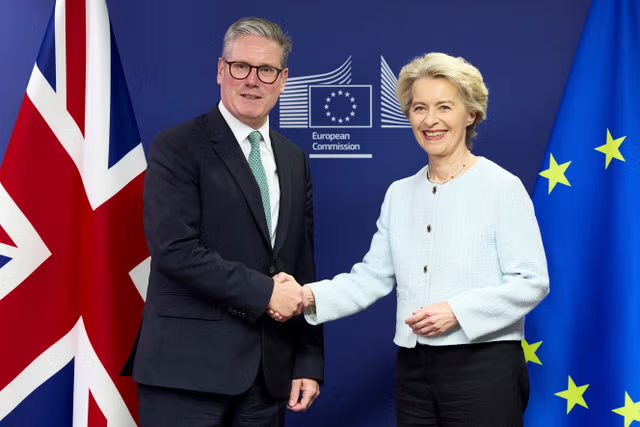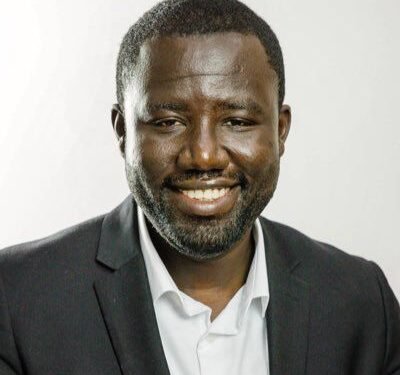In a dramatic eleventh-hour breakthrough, the United Kingdom and the European Union have agreed to a new framework that resets key elements of their post-Brexit relationship.
The deal, sealed just hours before a high-level summit in London, resolves long-standing disputes over fishing rights and the movement of agricultural products across borders.
Central to the agreement is a compromise: the EU will be granted access to British fishing waters until June 2038 — a 12-year extension that has already stirred backlash from UK political parties. In return, the UK has secured an indefinite agreement to ease checks on sanitary and phytosanitary (SPS) goods, which include food, animals, and other agricultural products.
While some see this development as a pragmatic step forward, others view it as a political retreat. Conservative Party leader Kemi Badenoch was quick to criticize the outcome.
“12 years access to British waters is three times longer than the govt wanted. We’re becoming a rule-taker from Brussels once again.”
Kemi Badenoch
According to sources within the EU, the longevity of the fishing rights deal was a key concession, but they maintain that a permanent SPS arrangement is a win for both sides, minimizing border friction and preventing future trade disputes in a sector vital to both economies. A UK official responded to the criticism by defending the agreement.
“There’s no change to the UK’s current access to fish or to quotas for either side. What we have done is protect the long-term interests of our fishing communities by ending the cycle of annual renegotiations that never truly threatened EU presence in our waters.”
UK official
The negotiations culminated ahead of a formal summit at Lancaster House, where Labour leader Keir Starmer is set to host European Commission President Ursula von der Leyen. The gathering is expected to go beyond trade issues and discuss closer defence cooperation, including improved access to EU defence funding for UK firms and streamlined entry for British travellers through EU e-passport gates.

Some Key Issues Persist
Not all elements of the broader UK-EU relationship have been settled. A proposed youth mobility scheme remains under contention, with UK negotiators pushing for limits on the number of young Europeans allowed entry, a condition the EU has so far rejected.
Complicating this proposal is the EU’s insistence that the UK rejoin the Erasmus+ programme, which supports academic and vocational exchanges. UK officials are reportedly wary of this condition, fearing it could result in EU students qualifying for domestic tuition rates at British universities. The loss in higher international fees, they argue, could be financially damaging to the UK’s education sector.
Nevertheless, Brussels insiders remain hopeful. One EU source expressed “optimism” that a final arrangement on youth mobility could be struck in the coming months, despite the unresolved sticking points.
Badenoch doubled down on her concerns, stating on social media: “And with no details on any cap or time limits on youth mobility, fears of free movement returning will only increase. This is very concerning.”
Ed Davey, leader of the Liberal Democrats, dismissed the Conservative critique as outdated. Comparing Badenoch and Reform UK’s Nigel Farage to “dinosaurs fighting old battles,” he urged the nation to move beyond the “Brexit wars of the past.”
Downing Street emphasized that the summit was not a single event but part of an ongoing process of discussions that will continue on unresolved issues. Yet, many have drawn parallels between the frantic late-night talks and the often tumultuous negotiations that characterized the original Brexit process.
Despite its modest economic footprint, fishing remains a symbolic and politically charged issue in UK-EU relations. Conservative and Reform UK leaders have long warned against deals they say compromise British sovereignty at sea.
As talks continue, this latest development offers a glimpse into how both sides may navigate their complex and evolving post-Brexit relationship, with pragmatism on some fronts and deep division on others.
READ ALSO: Investor Caution Deepens as Government Rejects GHS 2.59bn in Treasury Bids























